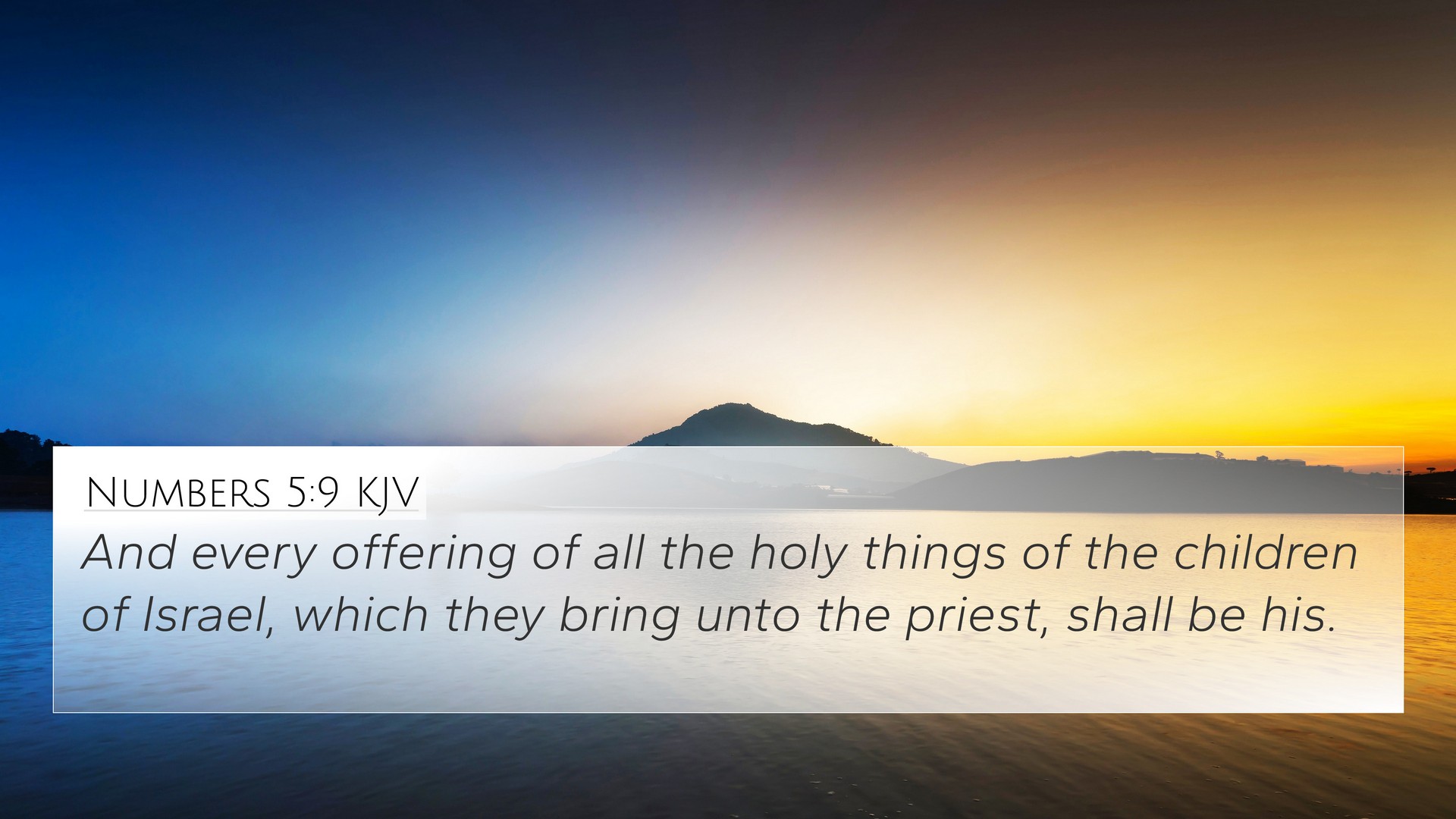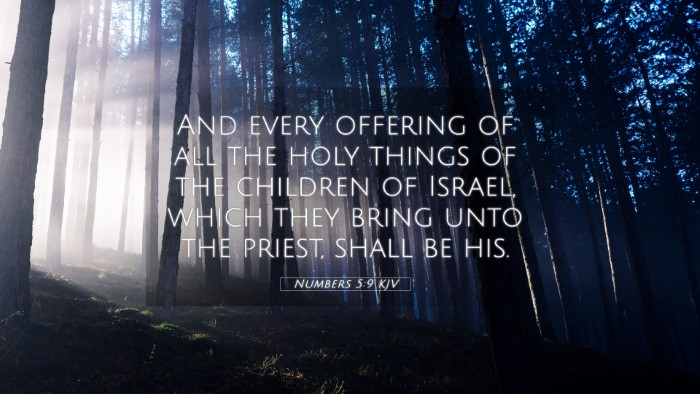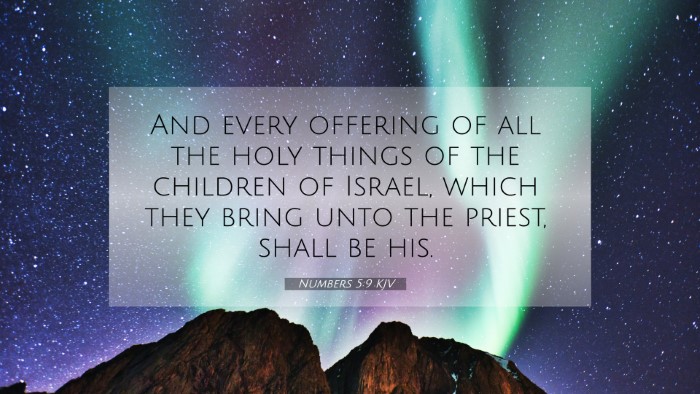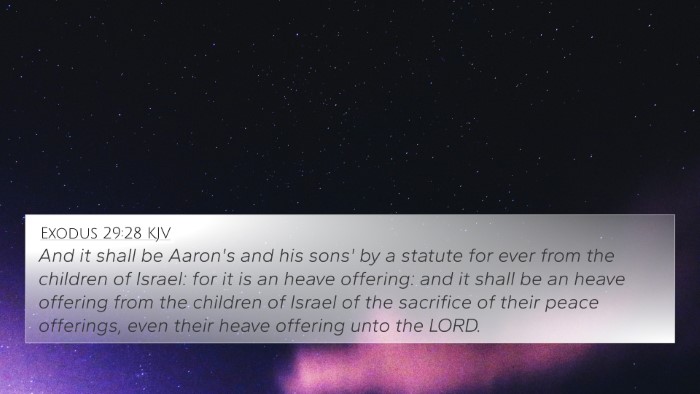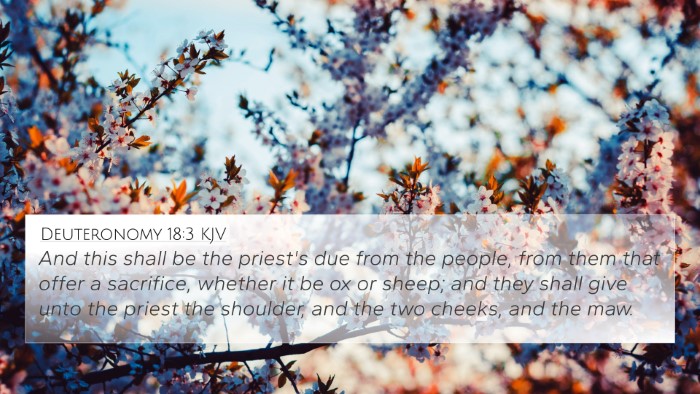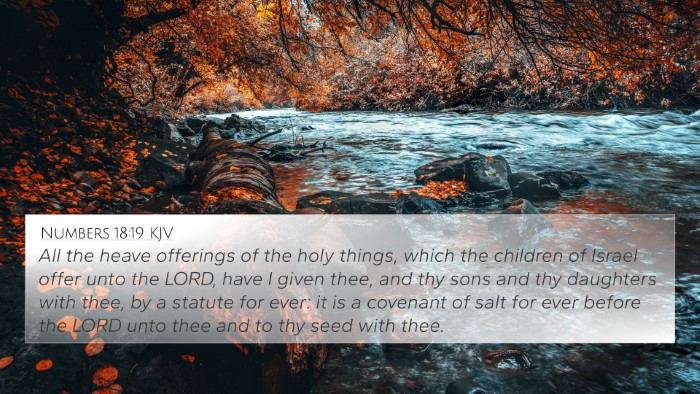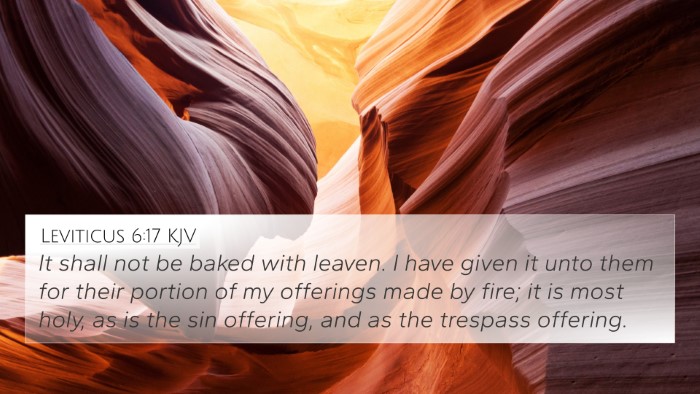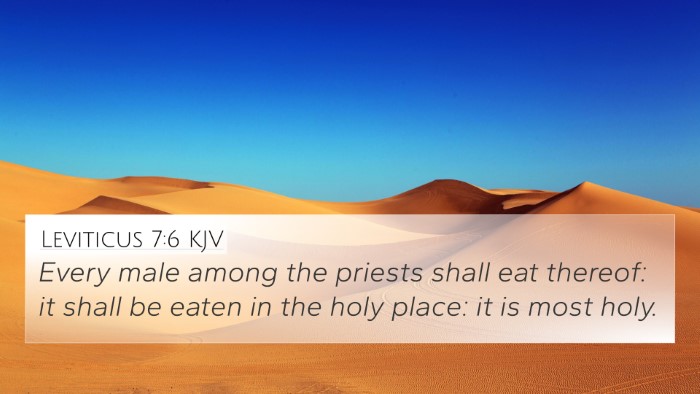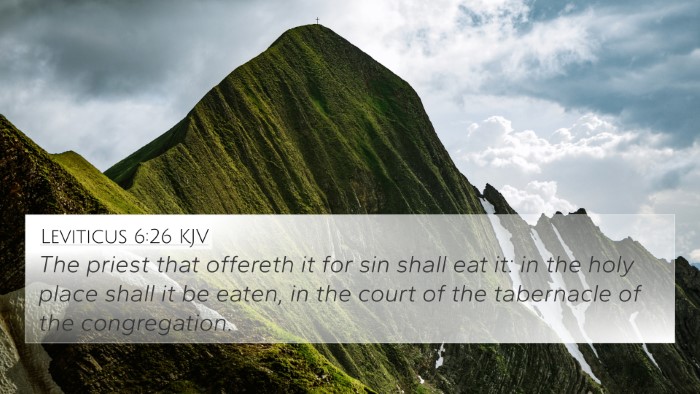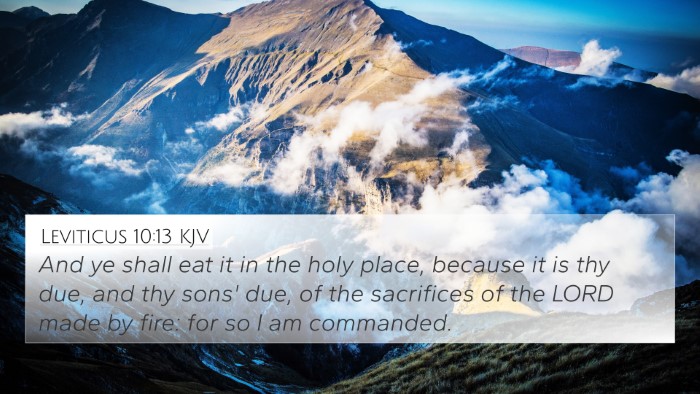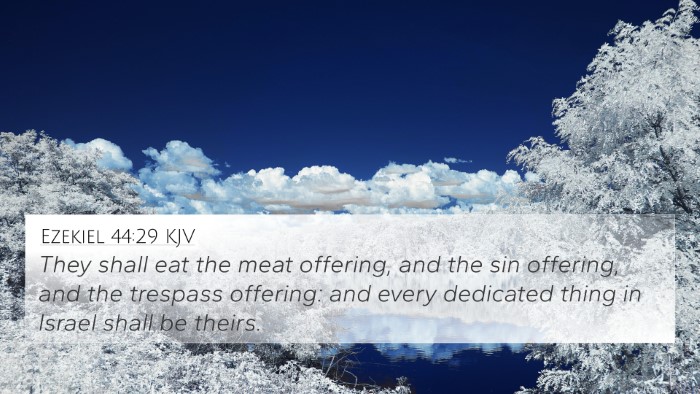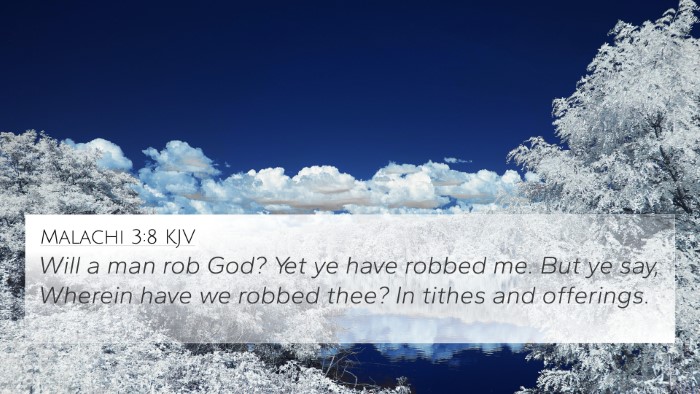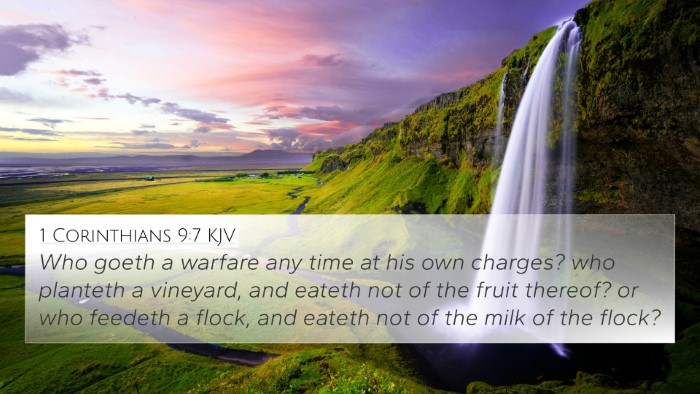Understanding Numbers 5:9
Numbers 5:9 states, "And every offering of all the holy things of the children of Israel, which they bring unto the priest, shall be his." This verse highlights the significance of the contributions made by the Israelites to the priests, ensuring that the lineage of Aaron is supported through their offerings. This directive not only underscores the role of the priests as mediators between God and His people but also emphasizes the importance of giving within the community.
Significance of Offerings in the Old Testament
The offerings mentioned in this verse are representative of the broader theme of sacrificial worship throughout the Scripture. They are a means of maintaining a righteous relationship with God and served as the foundation for the priests' sustenance. The requirement for the offerings reinforces the communal duty of the people to support the priesthood, who in turn performed sacred duties on behalf of the congregation.
- Matthew Henry's Commentary: Henry emphasizes that God, in His wisdom, established provisions for the priests to ensure that they could devote their lives to the service without worrying about their material needs. The offerings are a testimony of the faithfulness of the people in recognizing and fulfilling their spiritual obligations.
- Albert Barnes' Commentary: Barnes points out that this system reflects a mutual relationship where the priests represent the people before God, and in return, the people are called to support them. This illustrates the interconnectedness of worship and support within the community.
- Adam Clarke's Commentary: Clarke notes that the 'holy things' include not just offerings but also all dedicated items that served the worship of God, emphasizing the sanctity of what is given to God and the importance of dedicating one's substance to Him.
Cross-Referencing Biblical Texts
To gain a deeper understanding of Numbers 5:9, it is critical to explore the interconnectedness of various Bible verses. Here are some related scriptures that provide insight into the themes of offering, priesthood, and community responsibilities:
- Exodus 29:28: References the priests receiving their share of the offerings, linking to the established precedent of their support.
- Leviticus 7:32-33: Discusses the right of the priest to the breast and shoulder from offerings, further explaining their provision.
- 1 Corinthians 9:13-14: Paul highlights the principle that those who work in the ministry should be supported by the congregations.
- Malachi 3:10: God encourages the giving of tithes to ensure the sustenance of His house and the ministry.
- Hebrews 7:5: Discusses the priesthood under the law and how tithes were received from the people, showing continuity in the significance of offering.
- Matthew 23:23: Jesus rebukes the religious leaders for neglecting justice and mercy while meticulously tithing, indicating the heart of giving beyond mere obligation.
- 2 Corinthians 9:7: Stresses the attitude with which one should give, reflecting the spirit behind the offerings mandated in Numbers 5:9.
Thematic Connections in the Bible
This verse compels readers to consider the broader framework of biblical giving and priestly service. It serves as a reminder of the theme of mutual obligation between God, the priests, and the community. The Old Testament sacrificial system foreshadows New Testament principles of generosity and support for spiritual leaders.
Guiding Principles for Biblical Cross-Referencing
Utilizing a Bible cross-reference guide can enhance understanding of scripture by:
- Showing connections between Bible verses and their cross-references.
- Identifying common themes throughout scripture that enrich messaging.
- Providing insights into the thematic Bible verse connections essential to comprehending Biblical narratives.
- Facilitating a deeper exploration into Bible verses that relate to each other, providing context and analysis.
Conclusion
Numbers 5:9 is a vital verse underscoring the significance of offerings to the priesthood in the Old Testament, which holds continuing relevance in understanding the role of giving in the Christian faith. Through comprehensive Bible cross-reference materials and careful study, learners can uncover the profound interrelations within scripture, unveiling rich layers of meaning and intent. The practice of scriptural cross-referencing not only enhances devotional study but also deepens one’s theological understanding.
